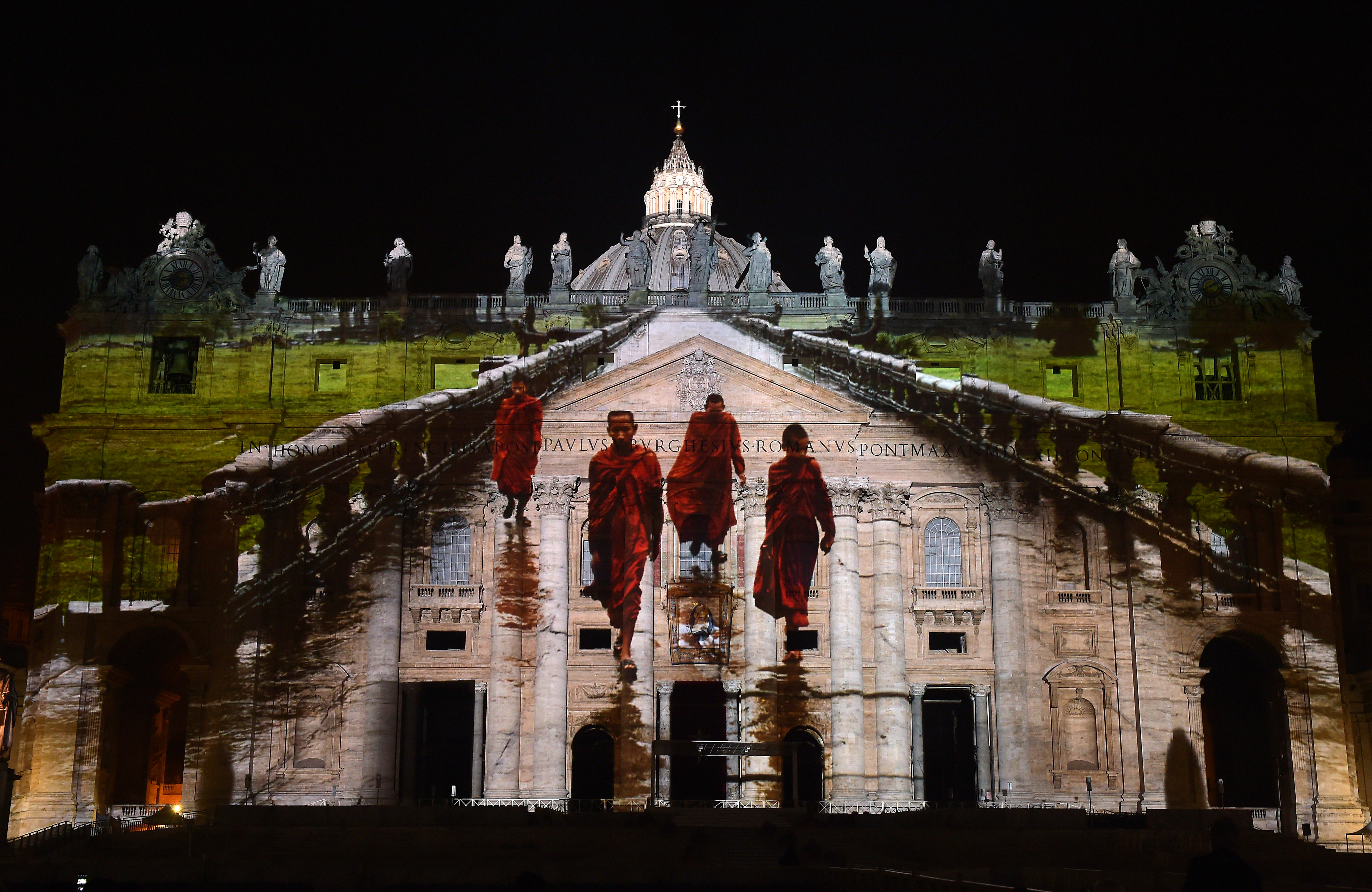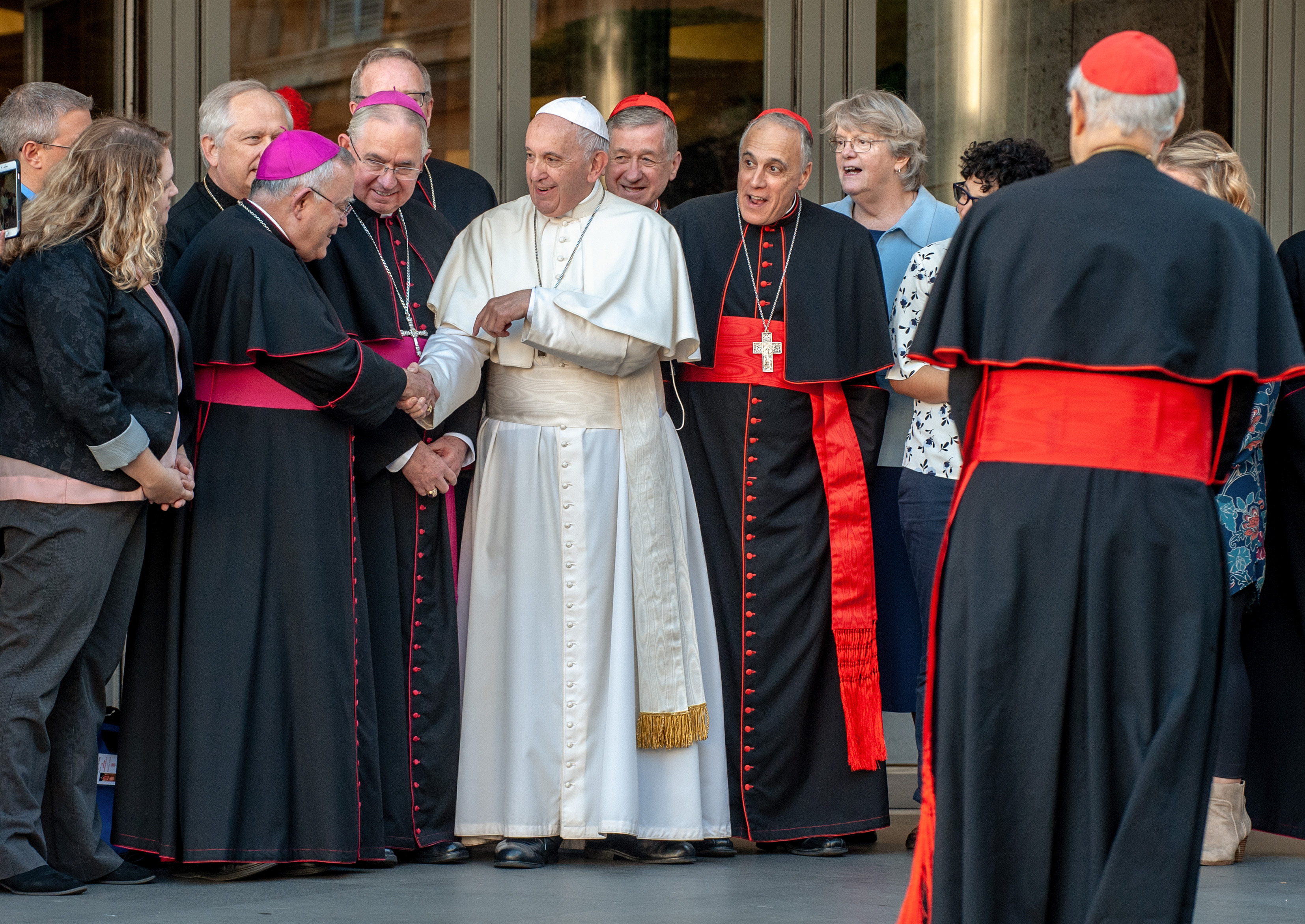For centuries the Catholic Church has been characterised by a devotion to unchanging tradition, where the rules are set forward by Popes and bishops and the people fall into line.
Pope Francis and the latest synod of bishops gathering have put a radically different ecclesiology into motion by showcasing a Church which listens, “walks with” people, gives women a role in decision making and ends governance by issuing edicts from on high.
The final document of the synod assembly on young people, the faith and vocational discernment follows in the spirit of the Second Vatican Council (1962-1965) that consigned the “fortress Church” idea to history and came up with the proposal for a worldwide synod of bishops to address the challenges facing contemporary Catholicism.
While previous pontificates put safeguards around the power of synods, Francis has taken the idea of a “synodal Church” as his vision, which has been fleshed out in more detail with the document released on the evening of Saturday 27 October.
A synodal Church is far from being a buzzword dreamt up by a curial official.
Synods, as the new document points out, are biblically rooted in the Road to Emmaus story where, as the disciples “talked and discussed these things with each other, Jesus himself came up and walked along with them”.
The 60-page document, released at this point only in Italian, decrees that “synodality” must be a “constitutive” part of the Church, seeking to lock it into every aspect of ecclesial life from the parish level upwards.
It urges bishops conferences across the world to take up the synodal “path”, by listening, welcoming and engaging in a “common discernment” which transforms the lives of everyone involved in it. This “missionary synodality”, the document adds, should be focused on the most vulnerable, the poor and those who have no contact with parish communities.
Inside the Church, this requires a “mutual listening where everyone has something to learn,” where the “People of God" are leading the way and young Catholics are “co-responsible” in the mission to bring the Gospel to emerging generations.
“The lived experience made the Synod participants aware of the importance of a synodal form of the Church for the proclamation and transmission of the faith,” the document explains. “The participation of young people has helped to ‘awaken’ synodality, which is a ‘constitutive dimension of the Church’.”
It goes on: “The Church is called to be relational, focussing on listening, welcoming, dialogue.”
After bishops had voted through the final document and closed out their gathering, the Pope emphasised the synod structure was not based on secular models of governance and has wider implications than simply producing a text.
“The synod is not a parliament,” he said. “It’s a protected space where the Holy Spirit can act. Let us never forget this, it was the Holy Spirit that was at work here.”
Every paragraph in the synod document was voted on by 249 synod fathers and needed a two-thirds majority – 166 – for each section of the text to pass. All of the 167 paragraphs of the document were adopted by the assembly, and it is now up to the Pope to decide what he does with the final document.
Unlike the 2014 and 2015 synod of bishops gatherings on the family where the question of communion for divorced and remarried Catholics was top of the agenda, the youth synod has largely avoided contentious doctrinal disputes.
Instead of teaching developments, the document on youth is a pastoral action plan produced following almost a month of intense discussions which included 36 people aged 18-29.
The synod text has, however, produced a “modus operandi” for the Church which lays the groundwork for more radical pastoral shifts in the future.
On the role of women the document says it is a “duty of justice” that they become involved in decision making in the Church stressing the "urgency of an unavoidable change” in approach.
“An area of particular importance is…the presence of women in the ecclesial bodies at all levels, also in positions of responsibility, and of female participation in ecclesial decision-making processes while respecting the role of the ordained ministry,” the text explains.
“It is a duty of justice, which finds inspiration both in the way in which Jesus related to men and women of his time, and in the importance of the role of some female figures in the Bible."
On gay Catholics, the final text avoids using the phrase “LGBT” which had been present in the synod’s working document, and the first time such a reference had been used in official Vatican material.
The final synod document paragraph on the topic reads as a compromise between those bishops – particualy from Africa – who were opposed to the inclusion of LGBT, and a pastoral concern for gay Catholics who for years have felt excluded by the Church.
It was also the section of the document which passed by the tightest margin: 178 bishops voted in favour and 65 against.
“The synod reaffirms that God loves every person and so does the church, renewing its commitment against every discrimination and sexually-based violence,” the text states.
"Equally reaffirmed is the determinative anthropological importance of the difference and reciprocity between man and woman and it is held to be reductive to define a person's identity only by their 'sexual orientation,'" it explains, citing a 1986 document from the Congregation for the Doctrine of the Faith that has been heavily criticised by gay Catholics for its harsh tone.
On the other hand, the synod text talks about the need to "accompany" gay Catholics, and "to recognise the desire to belong and contribute to the life of the community” and “discern” how this can take place.
The synod of bishops gathered in the wake of the abuse crisis and explosive accusations levelled against the Pope’s handling of sexual misconduct claims against a senior cardinal by Archbishop Carlo Maria Viganò, the former Vatican ambassador to Washington.
During his final speech to the synod fathers, the Pope said the Church was subject to “continuous accusations” which he said are a “form of persecution”. He said: "The Church must not be dirtied. We're all dirty, but not the Mother" who "must be defended from the Great Accuser.”
While not explicitly referring to Archbishop Viganò, the Pope’s remarks can be read in the context of the retired Vatican official’s testimonies which have included a long list of accusations.
The synod text describes how clerical sexual abuse revelations have become a "serious obstacle" to the church's mission, and admits cases have been handled in a manner "lacking responsibility and transparency". It also thanks those who came forward to denounce the crimes.
The document emphasises the desire young people have for “authenticity” in the Church, the importance of understanding the digital world and its pitfalls such as fake news, education, and the plight of so many migrants felling war and persecution.
A synod of bishops gathering is advisory, and the Pope can amend, edit or reject the final text which is presented to him to reflect on.
While in the past it is the tradition for Popes to write their own document based on the final text, Francis has made changes to the synod process which says the document of the gathering can become part of the "ordinary magisterium”, the highest level of church teaching.
The synod assembly concludes tomorrow with a Mass celebrated by the Pope in St Peter’s Basilica and a letter sent to the world’s young people from the synod, an initiative which has echoes of the message to youth sent at the end of Vatican II.



 Loading ...
Loading ...